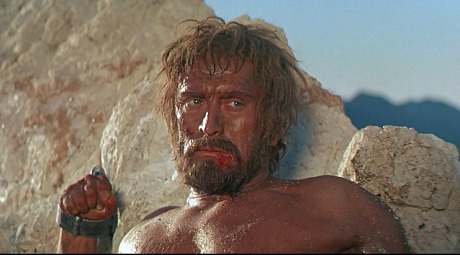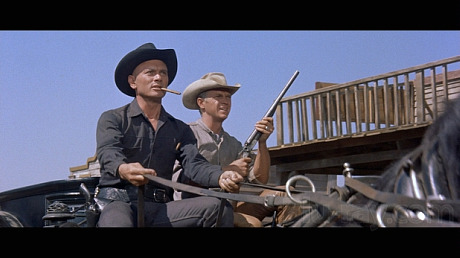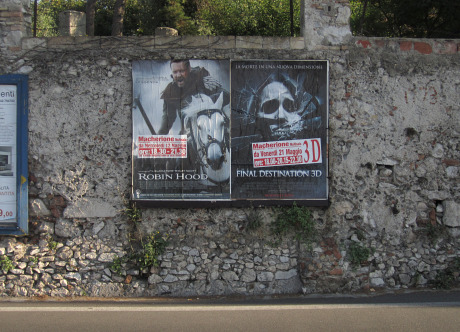We’ve all been expecting Sex and the City 2 to be vulgarly profligate and surface-y and generally reprehensible. To go by David Edelstein‘s New York review, it apparently is that. The challenge in reviewing such a film isn’t to state the obvious (i.e., confirm the expected) but to come up with fresh and exhilarating ways to trash and befoul the franchise, and particularly the four stars.
About all Edelstein attempts in this regard, part from rote lamentations about the fading or diminished appearances of Sarah Jessica Parker, Cynthia Nixon, Kim Cattrall and Kristin Davis, is to say that Liza Minnelli, who has a cameo, “looks more human.”
“The most depressing thing about Sex and the City 2 is that it seems to justify every nasty thing said and written about the series and first feature film,” Edelstein begins. The SATC dynamic has always been fragile, but at its most affecting you could see beyond the costumes and artifice and feel the characters fighting for validation — and connecting with one another in their struggle. Now there’s nothing but surface. And what a surface.
“The film is an epic eyesore. It’s as if they set out to make a movie that said, ‘You’re right! We are hideous!’
“The thinking behind the movie (written and directed by Michael Patrick King) is undisguised. Let’s start with an over-the-top gay wedding! Then we’ll send the girls to Abu Dhabi so they can rile up the fundamentalists with their sexuality! Then they’ll make fun of women in niqab (‘Certainly cuts down on the Botox bill!’) but later show (campy) feminist solidarity! Won’t they look great swishing around the desert being waited on by smooth young Arab men?
“Amy Odell, of nymag.com’s The Cut, accompanied me to the screening and was kind enough to whisper that a particular dress of Carrie’s cost 50 grand. But what’s the point of spending that much when the cinematographer, John Thomas, lights Sarah Jessica Parker to bring out the leatheriness of her skin? How did he manage to mummify the lovely Cynthia Nixon? Kim Cattrall, fresh off her witty, subtle work in The Ghost Writer, is costumed to look like a cross between (late) Mae West and (dead) Bea Arthur. Kristin Davis gets by (just) pulling little-girl faces, probably for the last time.
“For all the sniggery double entendres, virtually all of Sex and the City 2 is a pale shade of vanilla. But there is this one moment [in which] Cattrall, in short shorts in the Arab marketplace, has a flurry of hot flashes, drops to the ground, and writhes around screaming, ‘I have sex, yes! I quite enjoy it!’ People coming out of surgery with bad reactions to the anesthesia have been known to behave like that, which gives it some fleeting connection to real life.”
For me, nothing so far has topped the Onion‘s image of this quartet being thrown into a vat of acid and melted alive.












